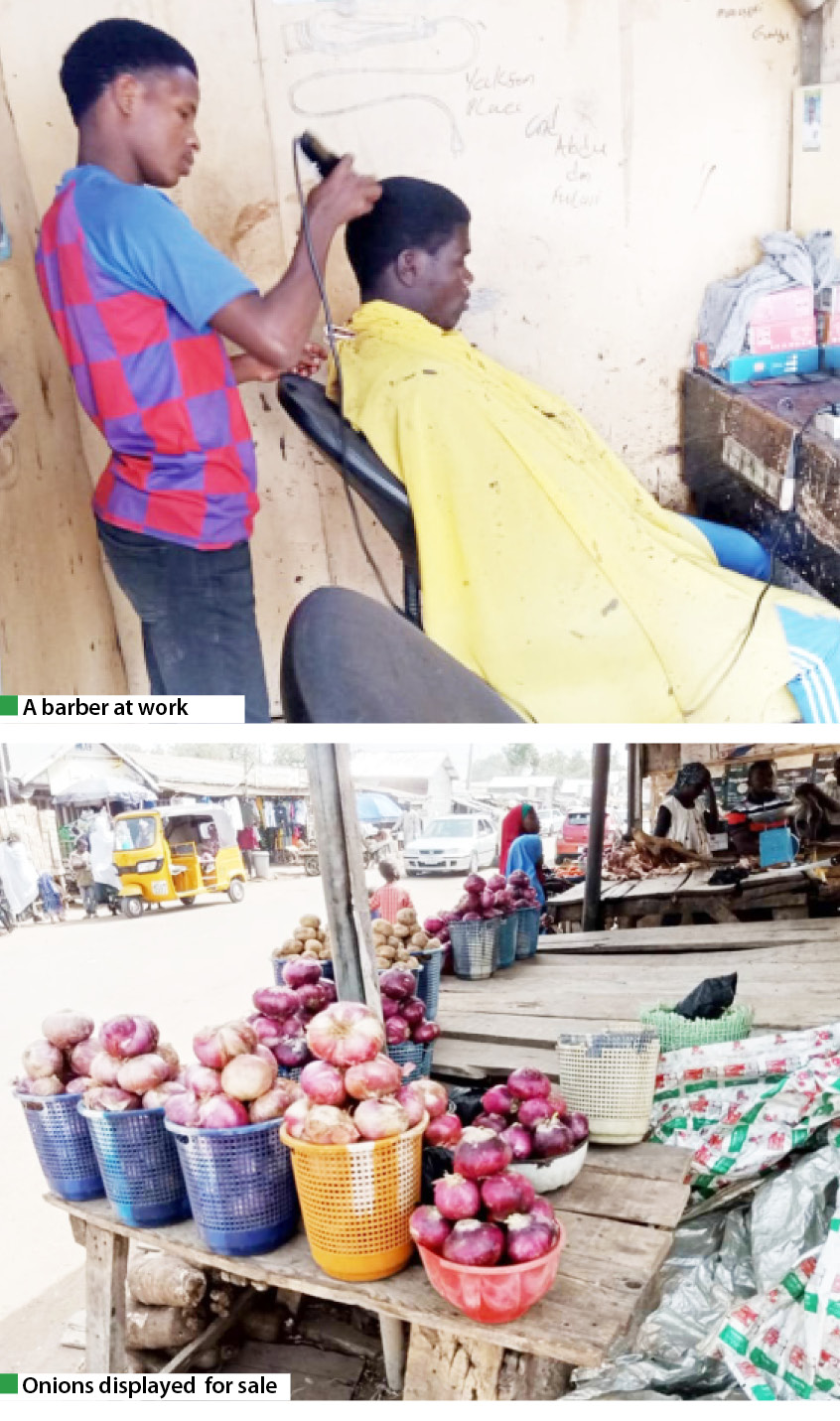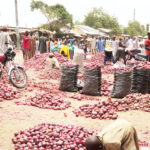As high prices of commodities persist, some Micro Small Scale and Medium Enterprises (MSMEs) find it difficult to survive in Yobe State.
A survey by Daily Trust on Sunday revealed that virtually all the entrepreneurs in the state have taken steps to increase the prices of their products and services to keep afloat.
Mallam Abdullahi, a barber in the Gwange area of Damaturu, said he had increased the price of his services.
He said, “I started shaving when we were buying a litre of fuel at N50, and now we are buying a litre at N315. We used to collect N50 to N100 per person, but now we collect N200 to N300.
- Youth and social vices: inevitable confusion
- Armed Forces Remembrance Day: Widows of fallen heroes seek support
“The price of a clipper is not more than N1,500, but now if you want a good clipper that can shave five to six people without any pain. You have to buy it for N9,000 to N9,500; sometimes It reaches N10,000.
“We have tools like after-shave and dusting powder which we used to buy for N70 but now costing N550, We buy butterfly clipper oil for N450 which was N150.”
The situation of Mrs Maijidda Akawu, a local food seller, is not different, as she said she had to stop her weekly saving routine (adashe) for her to remain in business.
Maijidda said she cut the amount of meat she bought daily when she realised that the profit was no longer sustainable, and that she had slashed unnecessary expenses by producing less and dropping some items from her menu.

She said, “I am not gaining anything as a food seller, because what you eat for yourself and your children is your profit. For now there is no provision of weekly thrift, no unnecessary spending. I swear there is a time when we will come and cook the food, if we recover our capital, we thank God.’’
Mallam Idris Abubakar, a foodstuff seller, said he had taken numerous steps to ensure that his long-term ambition was achievable, including sacking three boys who were working under him.
He said, ‘‘I had three boys working for me, but I fired them after I realise that this inflation has not reduced; it is increasing every day.
To ensure that he did not leave the business, Abubakar decided to raise the prices of his goods despite numerous complaints by his customers.
Hassan Ibrahim, a bakery owner, agrees with numerous challenges facing their factories, saying, “I don’t want to be one of the people who closed their bakeries, but to be honest, the situation in which we run our business is difficult. If you look at the people who are working under you and you close the factory, how do you think their lives will be?
To compete with others a bakery owner has taken another direction, by ensuring that they produce a lot of products so that they can compete with others in the market.
As the inflation persists in the country, most Nigerians have had to cut back their shopping in a bid to manage their earnings. That is why some have given up buying groceries now as disclosed by Aliyu Umar Gambo, a vegetable seller.
“Yesterday was good, today was not good, every time my buyers come to shop, and they come across a new price, they are surprised. I use to apologise to them by saying that this is how we got the goods,’’ he said
Salisu Abdulkareem, owner of provision store, said, “We are really suffering due to the market situation, because things we used to sell for N10 in the last years are now up to N20 or N30 and some have even doubled their prices.
‘‘That is why all the small businessmen have lost a lot of their capital. There is a man who used to buy one trailer of goods, but now he can’t buy even half of it. Because if he used N10m to buy products before, now he has to get N100m before he can afford the same.
‘We have taken steps to survive the situation’
The Chairman of Yobe State Bakery Owners Association, Alhaji Manu, said the cheapest flour brand was the one they now bought for N30,000 or N30,500.”
He said, ‘‘If dealers will give you one bag of flour on credit, they will give it to you for N32,000 and you will also buy sugar for N32,000 to N33,000 a bag.”
He, therefore, said the bakeries had reduced the sizes of their tins, noting that some of their members had moved to make two quality breads which prices were higher than others and an affordable one which price was right for the needs of the poor.
All efforts to contact the Focal Person of the Yobe Micro Small and Medium Enterprise Survival Fund and Guaranteed Offtake Scheme, Mr Abubakar Adamu Fika, proved abortive.

 Join Daily Trust WhatsApp Community For Quick Access To News and Happenings Around You.
Join Daily Trust WhatsApp Community For Quick Access To News and Happenings Around You.


